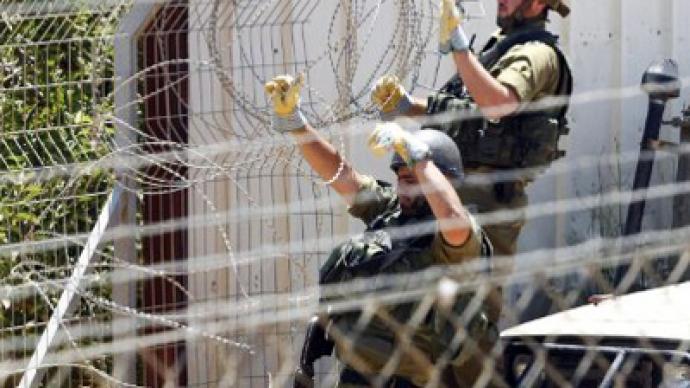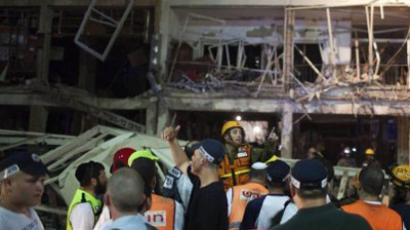Turmoil in Syria may spill out into war for Israel

Israel has allegedly sent a message to Syrian President Bashar Assad in recent days, warning him that if he starts a war with the Jewish state in order to divert attention from domestic problems, Israel will target him personally.
According to a report by Kuwaiti newspaper Al-Jarida, the personal warning was sent through Turkey and follows reports of unusual troop movements in Syria, including the relocation of ballistic missiles able to reach Israel.Israeli experts speculate Assad could go on the offensive to divert international attention from internal unrest. Another theory is that an attack could be staged by Assad's long-time allies Hezbollah from Lebanon.In response Israel has deployed new missile defense systems near its border with Lebanon. It follows reports that Hezbollah could be moving its weaponry, stationed in volatile Syria, back to Lebanon. Some fear that Syrian turmoil may destabilize the whole of the region.Things are quiet on the Israel-Lebanon border. But many suspect it is a lull before the storm. Everything hinging on what happens in neighboring Syria and what Hezbollah decides to do with its stockpiles there.“Any opposition group that might take over in Syria will definitely consider Hezbollah as an enemy, as a threat. So for Hezbollah the most logical thing to do is to transfer the weapons they put in Syria into Lebanon,” Eyal Zisser, Professor at Tel Aviv University believes.For years Hezbollah found an ally in Syrian President Bashar Assad. And so it is no surprise they want him to stay in power. But if he goes – and those who are pressurizing him to do so – would do well to remember this: the regional impact could be terrifying.“Syria, unlike Libya, is part of an alliance and that alliance is very wide. It begins in Iran, some elements in Iraq’s government are part of it, the Syrian regime, Hezbollah in Lebanon, Hamas in Gaza,” explains Walid Phares from the Washington DC-based National Defense University.Western intelligence reports suggest Hezbollah has already started moving some of its advanced weaponry from its warehouses in Syria to its forces in Lebanon for fear that Assad will be toppled. But getting rid of him is one thing. Dealing with the consequences is quite another.“The situation in Syria is very complex, very volatile, very dangerous. The collapse of the Syrian government could engender great regional instability,” says Eric Margolis, contributor for the Huffington Post.That could include a new war between Lebanon and Israel. Already the weapons Hezbollah has in its possession are able to strike almost any corner of the Jewish state. The new stockpiles in Lebanon would only aggravate an already tense situation."As far as we know, Hezbollah has now accumulated around 45,000 missiles of various ranges. There is one of them with a range which goes beyond 350 kilometers, which, according to them at least, can reach all of Israel till Eilat in the south of the country," says Dr. Yoram Kahati from the International Institute for Counter-Terrorism.There is a museum in Israel which was set up about a decade ago to showcase weapons, ammunition and items captured from Israel's enemies. Some of the missiles shown there originated in Syria, found their way to Lebanon and were fired by Hezbollah at Israel back in 2006, Israel says.On the ground, an almost ominous threat. The Lebanese, Palestinian and Hezbollah flags flying on the Israeli border. The message is clear. Here, no country is immune to what happens to its neighbor, and it will not take much to turn the region’s precarious peace into all out war.














